- Home
- Personal Loan
- Personal Loan Preclosure
Personal Loan Preclosure
- Personalized Personal Loan solutions
- Expert guidance
- Application assistance
- Credit score discussion
- Personal Loan Interest rate comparison


Last Updated: 7 February 2026
When a borrower pays off a personal loan before the loan’s term is over, the debt is said to have been preclosed. This relates to the loan’s principal sum. The borrower may benefit greatly from a loan preclosure. Therefore, always consider paying off the debt early if you can afford to do so. Having said that, it’s crucial that you properly read the loan agreement and comprehend all of the preclosure terms and circumstances. If you have any questions regarding the preclosure of the loan, you can also speak with your lender.
What is Personal Loan Preclosure?
Personal loans can be useful in extreme financial necessity cases, such as weddings, home repairs, emergency medical care, etc. However, you should consider pre-closing your personal loan so that you are free of it whenever you have extra cash. The majority of banks let you pre-close a personal loan by paying the balance in full at any time following six instalments. However, doing so results in a pre-payment penalty.
Explore Some Other Personal Loan Options
What is the Personal Loan Preclosure Procedure?
If you want to foreclose on your personal loan, you must follow the steps below:
Reach out to your lender
The borrower must first contact the lender and generally submit a written application outlining their desire to foreclose the debt. Along with all other crucial client information, the application must include the current loan account number.
Making Principal Payments
The amount due is determined once the lender receives the application and accounts for both the date of foreclosure as well as the interest that has already been paid. The date of foreclosure is then disclosed to you, and you have until that time to make the payment. While making the foreclosure payment, the foreclosure charges are added.
Obtain the certificate of no dues
Make sure you obtain a no-dues certificate (or NOC) from your lender attesting that all payments have been received and there are no outstanding balances. All other crucial customer information must also be included on the certificate.
Prepayment vs. Preclosure
| Prepayment of Loan | Preclosure of Loan |
| Early repayment of loan, partially or fully. | Paying off the entire loan amount before the loan term ends. |
| Reduces the outstanding principal, lowering interest obligation. | Remarkably lowers the interest burden and closes the loan earlier than expected. |
| Allows depositing extra funds to minimize interest and shorten tenure. | Requires an application to the bank, which calculates the foreclosure balance. |
| Ideal for utilizing occasional windfalls or bonuses. | Involves paying the calculated sum to close the loan, obtaining no-dues certificate, and original paperwork. |
| Interest and EMI adjusted based on the updated loan balance. |
Choose Your Desired Personal Loan
By Professions
By Amount
By CIBIL Score
By Schemes
Without
What are the types of personal loan closures?
One of the most popular kinds of loans is a personal loan. The use of a personal loan has a number of advantages.
- There are no limitations on how to use the loan proceeds.
- Quick approval, disbursement, and availability of money
- No need for collateral, little paperwork
Customers have a wide range of options thanks to the personal loans offered by commercial banks, NBFCs, and digital lenders. Additionally, the increasing competition makes it possible for you to get personal loans at an interest rate that is reasonable for you.
When you take out a personal loan, the borrowed amount is deposited into your bank account, just like with all other loans. Following that, you make monthly EMI payments to repay the loan (principal plus interest).
Closing of Personal Loans on a regular basis
Closing of a personal loan on a regular basis occurs when all EMIs have been paid. The borrower must inform the lender to issue the No Objection Certificate for the preclosure of the due loan and then the certificate for the loan closure once the borrower is over with the payment of the final EMI.
Pre-closure of a personal loan
In essence, a personal pre-closure occurs when the borrower opts to pay off the amount of the personal loan before the predetermined term. The borrower often has two options: pre-closing their personal loan after a year or making a minimum payment of 12 EMIs. However, the payment of the current month’s EMI will be mandatory for the borrower, as any unpaid balances and the foreclosure fees when the loan is foreclosed.
Part-payment on a personal loan
A personal loan part payment is an option for a borrower who wants to shorten the length of the loan and the number of monthly payments. The financial lender’s terms and conditions will apply to the part payment amount.
What are the Advantages of Personal Loan Preclosure?
The majority of banks allow prepayment of the balance after a year. You will save a lot of money on interest if you decide to repay the loan in full. Here is an illustration of how you will profit:
Consider taking out a Rs. 3 lakh loan with a 5-year term and a 15% annual interest rate. After calculation, your equivalent monthly payment (EMI), assuming the processing cost is 2%, will total Rs. 7,137. By doing this, you will be paying Rs. 35,529 in interest by the end of the first year. You will avoid paying Rs. 57,049 in interest if you choose to pay the outstanding sum of Rs. 2,64,160 in full right away.
However, some banks could charge a fee for foreclosing on a loan. The cost, which is based on the amount still owing, often falls between 2% and 5%.
What are the Pre-Closure Charges of Personal Loans of Top Banks?
When borrowers decide to foreclose on a loan, the majority of lenders impose a foreclosure fee. The fees associated with foreclosure typically range from 2% to 6% of the remaining principal that must be paid at the time of foreclosure. The foreclosure fees at PaySense are 4% of the outstanding loan balance.
What are the Factors to Consider Before Personal Loan Preclosure?
One of the first steps you should take if you want to lessen your financial burden is to try to pay off any personal debts you might have. This is due to the fact that personal loans typically have higher interest rates than other kinds of loans.
So you may drastically lessen the impact on your finances by shutting them off. Having said that, paying off your debt is not the only step in closing a personal loan. In actuality, it goes beyond that. While doing so, a few crucial factors must be taken into consideration.
Here are some of the most crucial points you should bear in mind when closing a personal loan:
- Preclosure Terms and Conditions
- Necessary documents that are required for the preclosure of the loan
- Closing fees for personal loans
- Certificate for the Closure of Loan
- The Score of Your Credit Performance
Apply for Personal Loan in your City
Conclusion
As a result, there are many things to consider before paying off your personal loan early. Make sure you consider the advantages of foreclosure before taking any action and that you are qualified for a prepayment. Before signing the loan agreement, review the foreclosure conditions, and if you have any questions, contact your lender. Take the appropriate decision because foreclosing your loan could help you save or cost you money, depending on how far along the term you are.
FAQ About Personal Loan Preclosure
Is pre-closure of personal loan advisable?
Yes, the pre-closure of a loan enables one to significantly reduce the amount of interest and EMIs that one would otherwise have to pay over the course of the loan.
How does pre-closure of personal loan work?
The full repayment of your loan in a single instalment before the due date is what a pre-closure or foreclosure is, thus—specifically, paying the outstanding balance all at once rather than via EMIs on a monthly basis.
Can we clear the personal loan early?
Yes, one can clear the personal loan early by getting in touch with the lender and knowing about everything that is needed.
Can I close my personal loan within 3 months?
The time period of pre-closure of a personal loan depends totally on the lender. Generally, a lender allows the pre-closure after a certain period of time, like after 6-12 months.
What if I want to clear my loan early?
One can clear the loan early by contacting the lenders and complying with all the necessary terms and conditions.
Is it good to pre-close a personal loan?
Yes, it is good to prepay your personal loan as it might improve your credit score.
What is the preclosure penalty, and how is it calculated?
The penalty of the preclosure penalty depends on the terms and conditions of the lender completely.
Can a personal loan be preclosed before the loan tenure ends?
Yes, a personal loan can be preclosed before the loan tenure ends.
Does preclosure impact the borrower's credit score?
Yes, the preclosure of a loan might improve the borrower’s credit score.
Can the preclosure penalty be negotiated with the lender?
Yes, the preclosure penalty can be negotiated with the lender.
Quick Links
Personal Loan by Nationalized Bank
Personal Loan by Private Bank
- RBL Bank Personal Loan
- Unity Small Finance Bank Personal Loan
- DCB Bank Personal Loan
- Reliance Capital Personal Loan
- Federal Bank Personal Loan
- karnataka bank Personal Loan
- IDBI Bank Personal Loan
- Kotak Bank Personal Loan
- HDFC Bank Personal Loan
- YES Bank Personal Loan
- CITI Bank Personal Loan
- HDFC Sales Personal Loan
- IndusInd Bank Personal Loan
- ICICI Bank Personal Loan
- IDFC FIRST Bank Personal Loan
- HSBC Personal Loan
- Axis Bank Personal Loan
- karur Vysya Bank Personal Loan
Personal Loan by NBFC
- Bhanix Finance Personal Loan
- Prefr Personal Loan
- Tata Capital Financial Services LTD Personal Loan
- Aditya Birla Finance Limited Personal Loan
- Ujjivan Small Finance Bank Personal Loan
- Hero FinCorp Personal Loan
- Capital First Ltd. Personal Loan
- Zype Personal Loan
- FatakPay Personal Loan
- Clix Capital Personal Loan
- PaySense Personal Loan
- DHFL Personal Loan
- MoneyWide Personal Loan
- AU Small Finance Bank Personal Loan
- FT Cash Personal Loan
- Edelweiss Financial Services Personal Loan
- Muthoot Finance Ltd Personal Loan
- InCred Financial Services Personal Loan
- SMFG India Credit Company Ltd Personal Loan
- IndiaBulls Personal Loan
- IIFL Finance Personal Loan
- Shriram Urban Co Operative Bank Limited Personal Loan
- Piramal Finance Personal Loan
- EpiFi Personal Loan
- L&T Finance Personal Loan
- Tata Capital Housing Finance Limited Personal Loan
- Bajaj Finserv Personal Loan
- Poonawalla Fincorp Limited Personal Loan
- Privo Personal Loan
- Loantap Credit Products Private Limited Personal Loan
Personal Loan Calculators
Bank wise Personal Loan Calculators
- Axis Bank Personal Loan Calculator
- Canara Bank Personal Loan Calculator
- Idfc First Bank Personal Loan Calculator
- Hsbc Personal Loan Calculator
- Indusind Bank Personal Loan Calculator
- Hdfc Bank Personal Loan Calculator
- Kotak Bank Personal Loan Calculator
- State Bank Of India Personal Loan Calculator
- Idbi Bank Personal Loan Calculator
- Indiabulls Personal Loan Calculator
- Muthoot Finance Ltd Personal Loan Calculator
- Paysense Personal Loan Calculator
- Bajaj Finserv Personal Loan Calculator
- Tata Capital Financial Services Ltd Personal Loan Calculator
- Hero Fincorp Personal Loan Calculator
- Karur Vysya Bank Personal Loan Calculator
- Union Bank Of India Personal Loan Calculator
- Punjab National Bank Personal Loan Calculator
- Bank Of India Personal Loan Calculator
- Bank Of Baroda Personal Loan Calculator
- Punjab Sind Bank Personal Loan Calculator
- Indian Bank Personal Loan Calculator
- Bank Of Maharashtra Personal Loan Calculator
- Citi Bank Personal Loan Calculator
- Rbl Bank Personal Loan Calculator
- Karnataka Bank Personal Loan Calculator
- Federal Bank Personal Loan Calculator
- Deutsche Bank Personal Loan Calculator
- Yes Bank Personal Loan Calculator
- Dcb Bank Personal Loan Calculator
- Icici Bank Personal Loan Calculator
Bank Wise Personal Loan Interest Rate
- Bank of India Personal Loan Interest Rate
- Punjab National Bank Personal Loan Interest Rate
- Bank of Baroda Personal Loan Interest Rate
- State Bank of India Personal Loan Interest Rate
- Punjab & Sind Bank Personal Loan Interest Rate
- Indian bank Personal Loan Interest Rate
- Bank of Maharashtra Personal Loan Interest Rate
- Union Bank of India Personal Loan Interest Rate
- Canara Bank Personal Loan Interest Rate
- RBL Bank Personal Loan Interest Rate
- Unity Small Finance Bank Personal Loan Interest Rate
- DCB Bank Personal Loan Interest Rate
- Reliance Capital Personal Loan Interest Rate
- Federal Bank Personal Loan Interest Rate
- karnataka bank Personal Loan Interest Rate
- IDBI Bank Personal Loan Interest Rate
- Kotak Bank Personal Loan Interest Rate
- HDFC Bank Personal Loan Interest Rate
- YES Bank Personal Loan Interest Rate
- CITI Bank Personal Loan Interest Rate
- HDFC Sales Personal Loan Interest Rate
- IndusInd Bank Personal Loan Interest Rate
- ICICI Bank Personal Loan Interest Rate
- IDFC FIRST Bank Personal Loan Interest Rate
- HSBC Personal Loan Interest Rate
- Axis Bank Personal Loan Interest Rate
- karur Vysya Bank Personal Loan Interest Rate
- Bhanix Finance Personal Loan Interest Rate
- Prefr Personal Loan Interest Rate
- Tata Capital Financial Services LTD Personal Loan Interest Rate
- Aditya Birla Finance Limited Personal Loan Interest Rate
- Ujjivan Small Finance Bank Personal Loan Interest Rate
- Hero FinCorp Personal Loan Interest Rate
- Capital First Ltd. Personal Loan Interest Rate
- Zype Personal Loan Interest Rate
- FatakPay Personal Loan Interest Rate
- Clix Capital Personal Loan Interest Rate
- PaySense Personal Loan Interest Rate
- DHFL Personal Loan Interest Rate
- MoneyWide Personal Loan Interest Rate
- AU Small Finance Bank Personal Loan Interest Rate
- FT Cash Personal Loan Interest Rate
- Edelweiss Financial Services Personal Loan Interest Rate
- Muthoot Finance Ltd Personal Loan Interest Rate
- InCred Financial Services Personal Loan Interest Rate
- SMFG India Credit Company Ltd Personal Loan Interest Rate
- IndiaBulls Personal Loan Interest Rate
- IIFL Finance Personal Loan Interest Rate
- Shriram Urban Co Operative Bank Limited Personal Loan Interest Rate
- Piramal Finance Personal Loan Interest Rate
- EpiFi Personal Loan Interest Rate
- L&T Finance Personal Loan Interest Rate
- Tata Capital Housing Finance Limited Personal Loan Interest Rate
- Bajaj Finserv Personal Loan Interest Rate
- Poonawalla Fincorp Limited Personal Loan Interest Rate
- Privo Personal Loan Interest Rate
- Loantap Credit Products Private Limited Personal Loan Interest Rate
Latest from the Personal Loan Blog
Get in-depth knowledge about all things related to Personal Loan and your finances
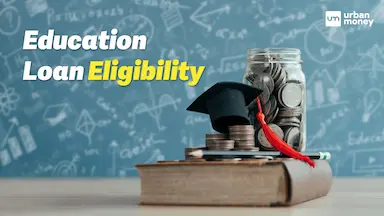
Education Loan Eligibility in India: Criteria, Documents & Mistakes to Avoid
Education loan eligibility is important for students and parents who want to fund higher education without financial stress. With rising education costs, understanding the eligibility criteria for education loans can sig
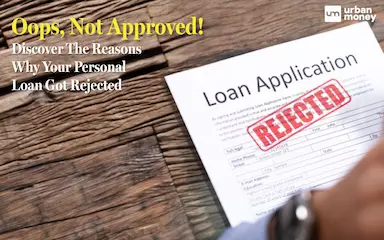
Reasons For Personal Loan Rejection
Applying for a personal loan can be a tough and slow process. This is especially true when you really need money. A personal loan can help cover unexpected expenses, fund a big purchase, or consolidate debt. It offers gr
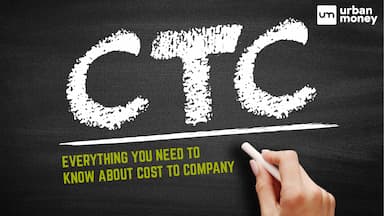
Cost to Company (CTC)
When considering a job offer, it’s easy to become fixated on the attractive “CTC” figure. But there’s more to this figure than strikes the eye. Realising the value of CTC requires going beyond its initial cost to determi
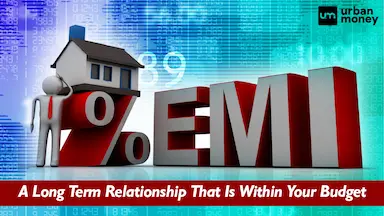
EMI: Meaning, How It Works, Calculation Method, Benefits & Drawbacks
EMIs have become one of the most common forms of payment for any financial obligation, from college fees to purchasing a new phone. This fixed monthly amount saves lakhs of citizens annually by preventing sudden financia
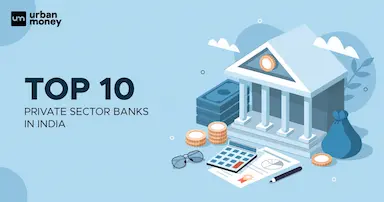
Top 10 Best Private Banks in India List 2025
Today, the banking system incorporates 21 private banks in India along with 12 public sector banks, foreign banks, rural banks, cooperative banks, and financial institutions. In total, the retail credit market of India r
